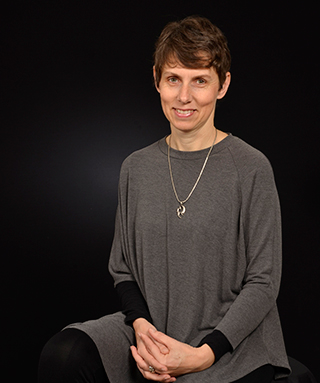

Prof Marlize Rabe |
What’s the most interesting thing about you that we wouldn’t learn from your CV alone?I have been a vegetarian for seven years, and since I stopped eating meat, I started to enjoy cooking. The best part of radio?It makes traffic bearable. And the worst part of TV?I don’t watch television. Which three people, living or dead, would you have liked to invite to your inaugural lecture, and why?Well, it would have to be people who are willing to listen, so unfortunately that excludes many decision-makers. Perhaps the new UN secretary general, António Guterres, because I think African social policies are not always well understood by international bodies. Zane Dangor, the Director-General of the Department of Social Development (despite his resignation), since a closer understanding of how to support families should be sought between academics and government structures. Mrs Nakubasamthini Masuku, the National Executive Director of FAMSA to reach a common understanding of what it means to embrace and support all types of families. How do you manage work-related stress?I ask myself if an issue will still be important next year. If not, I don’t spend unnecessary energy or time on it. Describe yourself as an academic leader in three words?Sceptical, analytical, supportive. |
The inaugural lecture of Prof Marlize Rabe, Department of Sociology, took place on 29 June 2017, entitled It takes a village to raise a child, but the village is ruined: Care and family policy in South Africa.
Rabe focused on care dynamics within families and the implications for family policy, premised on the fact that all people are in need of care at some point in their life. She explored the logic of a "care diamond" to focus on specific South African policy initiatives related to care and families.
She said that although certain care policies were directed towards individuals, regardless of family structures, specific family policy directions in South Africa are still stuck in outdated idealised family forms. "Furthermore, the gender dynamics that are prominent in all care relationships are largely ignored in family and related policies on care. Even more disastrous is that the intersections between gender, class, and race have been lost in the policy discourses."
She provided a detailed analysis and exploration of family policy in different parts of the world, taking in welfare states in the north, developmental states in East Asia and Latin America, and other African states. In the South Africa scenario, she indicated that care is undervalued in the country. She stated that the burden of care as an act should not be underestimated and that care as a positive moral value across racial lines should not be ignored.
Care was a focal point in Rabe’s lecture relating to family, the state, the market and the community in South Africa. She said that gender differences in caretaking could be overcome if more flexible gender constructions were encouraged. However, she warned that, as much as greater gender equality is an important ideal to strive for, it would not translate into general greater equality because of increasing economic inequality.
If we look at the demographic dividend in South Africa, Rabe believes that there are large numbers of potential caregivers. She said that the family as a care institution could thus potentially be relied upon, especially in certain communities. In others, individual members would have to rely increasingly on paid care services since there were not many (or any) available family members to care for them.
She added that these demographic realities had the potential to perpetuate current gender, racial and class inequalities. "Yet, moral values, such as ubuntu, the feminist ethics of care and the Charter of Compassion, may promote positive outcomes, especially if volunteer work, NPOs and communities are supported and given more recognition by the state."
*Compiled by Katlego Pilane and Sharon Farrell
Publish date: 2018-01-11 00:00:00.0